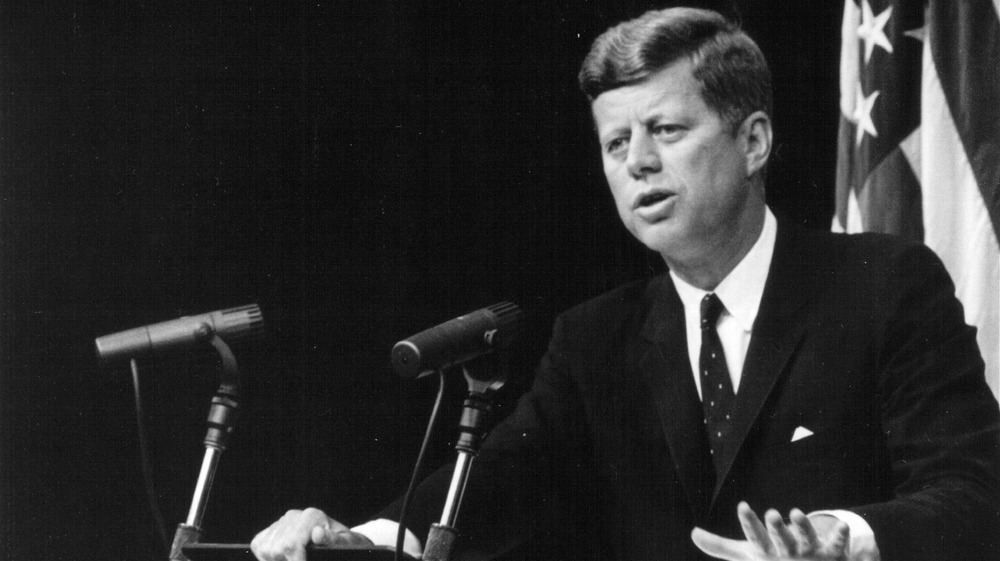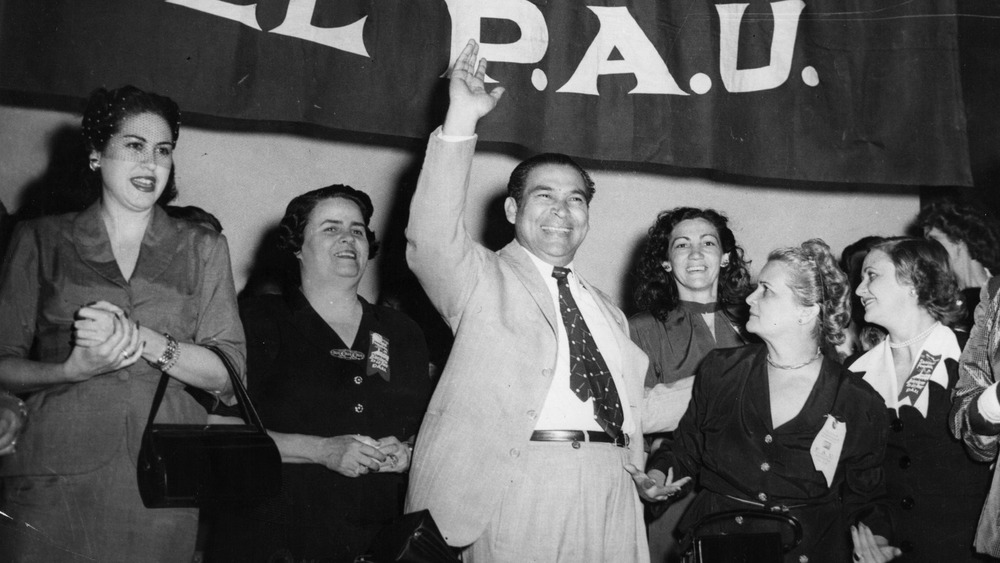Why The Kennedys Couldn't Stand Fulgencio Batista
Throughout his political career, John F. Kennedy struggled with the small island nation of Cuba as both a problematic authoritarian neighbor and as a proxy nation for the Soviet Union at the height of the Cold War. During his presidency, Kennedy launched what turned out to be a massive failure in an attempt to overthrow Fidel Castro's regime with the Bay of Pigs invasion in 1961. The next year, the U.S. found itself in what became known as the Cuban Missile Crisis after Air Force Major Richard Heyser captured photographs of Soviet missile sites at San Cristobal while he was flying a U-2 spy plane.
But well before he was president, Senator John F. Kennedy was already warning the country about how dangerous Cuba had become to U.S. national interests. "I want to talk with you tonight about the most glaring failure of American foreign policy today — about a disaster that threatens the security of the whole Western Hemisphere — about a Communist menace that has been permitted to arise under our very noses, only 90 miles from our shores," Kennedy told a group at a Democratic dinner in 1960, according to the John F. Kennedy library. Kennedy lamented that "our own shortsighted policies" toward Cuba and the regime of President Fulgencio Batista helped turn Cuba into a communist base in the region.
Batista was a once-ousted president who served from 1940 to 1944 and was reinstated as president in 1952 after staging a coup during an election year in which he was coming in a distant third, according to The Guardian.
Fulgencio Batista was a repressive dictator
Kennedy initially had high hopes for the aspirations of the Cuban Revolution (1953-1959) as an antidote to years of repression under Batista. He led the country with authoritarian tactics that included suspending the 1940 Constitution and revoked many of the country's political liberties, according to PBS. All of this was possible because of the military, financial, and logistical support from the U.S. government.
The fact that Batista's Cuba had become a problem for the United States by its own doing was an irony that was not lost on Kennedy, and it chafed him greatly.
"I believe that there is no country in the world... including any and all the countries under colonial domination, where economic colonization, humiliation and exploitation were worse than in Cuba, in part owing to my country's policies during the Batista regime," Kennedy told the French newspaper L'Express [via Congressional records]. "I will even go further: to some extent it is as though Batista was the incarnation of a number of sins on the part of the United States. Now we shall have to pay for those sins."
Following the Cuban Revolution, Batista fled to Portugal where he was the chairman of a Spanish life insurance company that invested in property and mortgages, according to The New York Times. He died in Spain of a heart attack on August 6, 1973, two days before a team of Cuban assassins were allegedly planning to kill him, per PBS.

